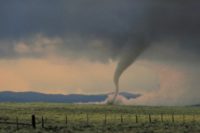On Monday, May 10, the PBS Newshour interviewed 23-year-old Chris Choy, a “roustabout” on the crew of the “Deepwater Horizon” oil rig, who survived the explosion that killed 11 co-workers and has thus far spewed several million gallons of raw crude into the Gulf of Mexico. With the network’s permission,ISHN,/em>presents here excerpts from the interview. For the complete interview, go to: www.pbs.org/newshour/bb/law/jan-june10/oil_5-10.html
Choy began work as a “roustabout,” helping crane operators, cleaning equipment, and handling various odd jobs in June, 2009 for Transocean, the rig’s owner. He describes the work as “different than anything else you ever do in your life. It's just, you know a big, big box out in the water floatin’ around. It's hot, cold, you know, there's no shade anywhere. You know, it's, most of the time it's pretty hard work and, I mean, it can get lonely at times.”
But in the interview he says: “I used to enjoy it. I mean, a lot. You know, I got to come home, back to bragging rights. You know, come in, yeah, I'm a rough neck, you know, do whatever I want. And I enjoyed it. I enjoyed the people I work with. I enjoy the work. Enjoy the money.”
That all changed on the night of April 20, 2010. Choy was asleep after finishing a 12-hour shift and talking to his wife on the phone. He awoke suddenly, hearing a sound he thought came from someone using a pressure washer outside his room. He went back to sleep. “And then I heard an explosion… just a loud boom.”
“People were going crazy. There was people jumpin’ off the rig, people holding people back form jumpin’ off the rig — people scrambling to get in the lifeboats
“I never been the person to be scared of anything. I mean, the guys I work with will tell ya’ I ain't scared of anything. And I was scared to death right then.” His only thought: “I’m fixin’ to die.”
Choy reached one of the rig’s lifeboats, an enclosed capsule, and made it to a cargo ship floating nearby. For the next six or seven hours he and coworkers watched the rig burn.
“I mean, it just, it makes you sick to your stomach just watchin’ that and known that —that you're missing guys and that they're up there somewhere, not knowin’ if they're alive or dead or if they jumped off and somebody's lookin’ for 'em in a boat.”
After 28 hours aboard the ship, Choy was finally reunited with his wife, Monica, at a hotel in Louisiana. They were met by representatives of a risk assessment company employed by Transocean as they prepared to head home. He was asked to sign paperwork verifying, among other facts relating to the blast, that he did not sustain any injury. Choy told the PBS Newshour reporter he signed the paper under duress, although he was healthy but fatigued at the time.
“I'd been up for almost 40 hours, and you know, just gone through hell. And they want to throw papers in my face for me to sign to take them, you know, out of their responsibility.”
Choy told the reporter he now suffers continually from nightmares and night sweats, and jumps awake shaking “just from any noise.” His wife says he’s not the same person. And he’s not returning to work on a rig.
No, absolutely not. I mean, as scary as, as much as stuff bothers me now at the house, just light noises, there's no way I can go out there and work safe and not end up — either injuring myself or hurting somebody else out there.”
According to the PBS Newshour, Choy has filed a lawsuit against Transocean and other companies involved with operating the rig, seeking restitution for mental anguish, loss of earnings, future medical expenses, and punitive damages for gross negligence. Contacted by PBS Newshour, Transocean would not respond directly to Choy's allegations, citing the ongoing litigation.
Oil rig survivor: "I ain't scared of anything. And I was scared to death."
Looking for a reprint of this article?
From high-res PDFs to custom plaques, order your copy today!






